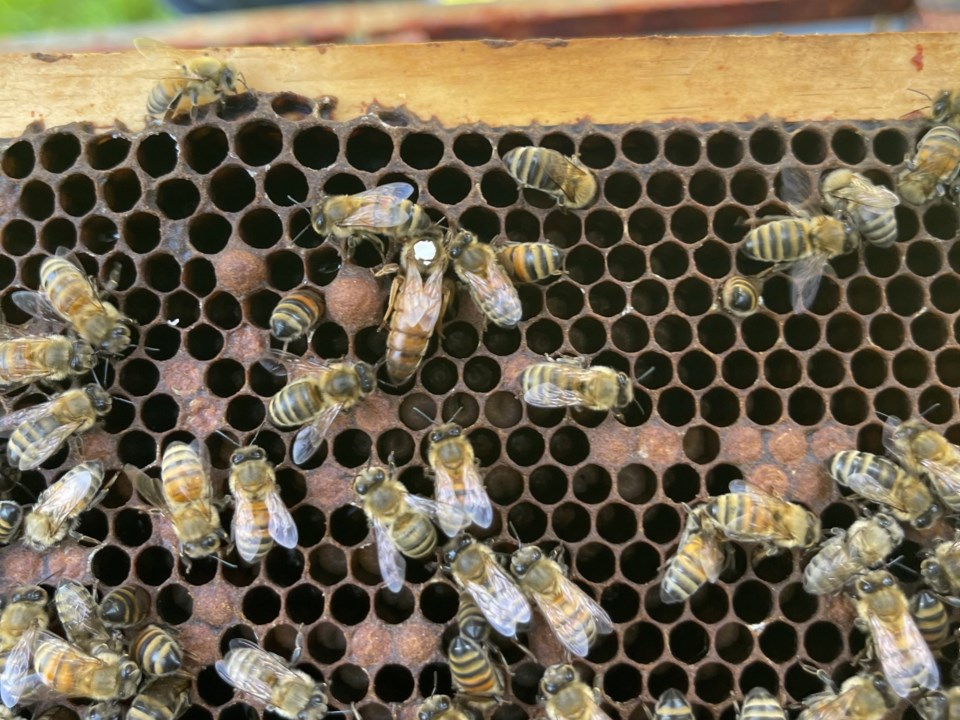When my husband and I embarked on our beekeeping journey three years ago, we knew that the learning curve would be steep.
Even after taking several workshops, learning how to install a hive in the yard, inspecting it and watching for signs of trouble, we still have lessons to learn. However, studying and observing honeybee biology has been nothing short of remarkable.
Fun facts: Honeybees are one of only a handful of insects that produce food eaten by people. Bees from a colony will travel several kilometers to collect nectar, and upon return communicate their food source location to other foragers through a waggle dance.
A hive at its peak in late summer may contain more than 50,000 bees. Unlike workers and drones, which live only a few weeks, queen bees can live for several years, laying more than 1,000 eggs a day.
Over some 3,000 years of beekeeping, honeybees faced few threats. Today, we beekeepers and our bees face many hurdles, including varroa mites, the fungus Nosema apis, viruses, bacterial diseases, wasp invasions, and pesticides. Some of these can cause colonies to weaken or even collapse. Regular inspections are required to stay ahead of potential issues.
Despite our best efforts and for various reasons, we have lost our colony twice, once in the first winter and once in the third. As upsetting as it has been, we’re going to give it another go and hope that between what we’ve learned and a little luck, we’ll be able to overwinter our colony again.
You can help bees by having pollinator-friendly plants in your garden throughout the season, varying them by colour, shape, size, and fragrance.
In 2020, Bee City Canada designated Delta a Bee City, committed to protecting pollinators and their habitat. For Delta beekeeping bylaws, visit delta.ca.
Editor's note: Nature Notes is a new column in the Optimist prepared by the Delta Naturalists Society and their community partners.




